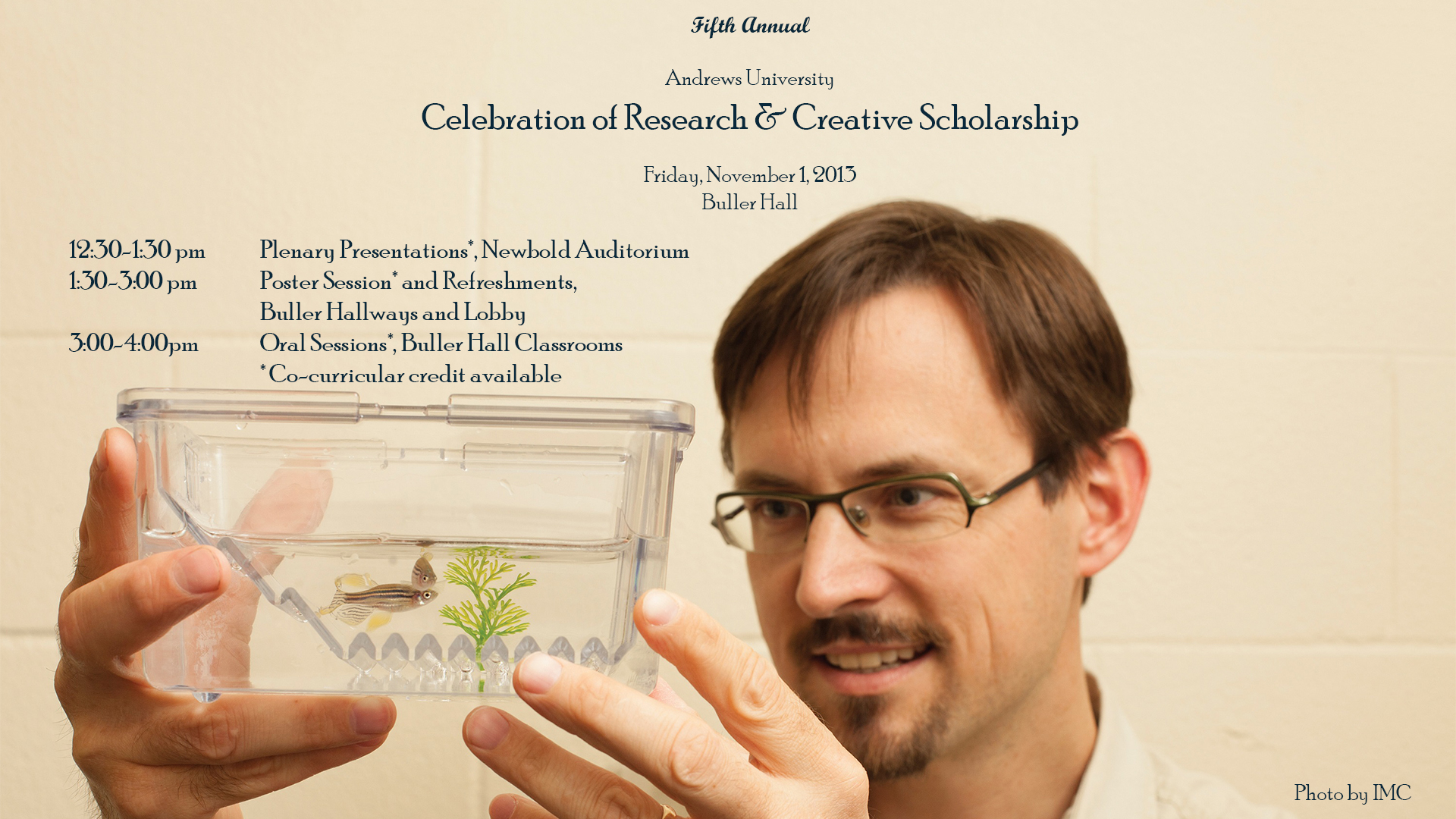A-1 Perceptions of Health Behaviors by Seventh-day Adventist Undergraduate Students: Do parents and religion matter?
Presenter Status
Department of Social Work
Second Presenter Status
Department of Social Work
Third Presenter Status
MSA Student in Community and International Development
Location
Buller Hall 108
Start Date
1-11-2013 3:00 PM
End Date
1-11-2013 3:15 PM
Presentation Abstract
This qualitative study investigated college students’ perception of drug and alcohol use, and sexual activity, in order to gain a better understanding of the decision making process regarding participation in health risk behaviors. In addition, questions were asked in regards to the influence parents and religion may have on these behaviors. There were 52 undergraduate students of a Seventh-day Adventist university who participated in six focus groups. The results were coded and analyzed, and a theoretical model was developed describing the students’ perception of drug and alcohol use, and sexual activity, what influences those perceptions, and how those perceptions may influence decision making. Subcategories of each component of the theoretical model were identified and are illustrated by narrative data. Results will include implications on how healthy behavior choices influence commitment to the church. Implications for health risk behavior research and practice, Seventh-day Adventist university administrators, church youth directors, parents, and clinical practice are addressed.
A-1 Perceptions of Health Behaviors by Seventh-day Adventist Undergraduate Students: Do parents and religion matter?
Buller Hall 108
This qualitative study investigated college students’ perception of drug and alcohol use, and sexual activity, in order to gain a better understanding of the decision making process regarding participation in health risk behaviors. In addition, questions were asked in regards to the influence parents and religion may have on these behaviors. There were 52 undergraduate students of a Seventh-day Adventist university who participated in six focus groups. The results were coded and analyzed, and a theoretical model was developed describing the students’ perception of drug and alcohol use, and sexual activity, what influences those perceptions, and how those perceptions may influence decision making. Subcategories of each component of the theoretical model were identified and are illustrated by narrative data. Results will include implications on how healthy behavior choices influence commitment to the church. Implications for health risk behavior research and practice, Seventh-day Adventist university administrators, church youth directors, parents, and clinical practice are addressed.



